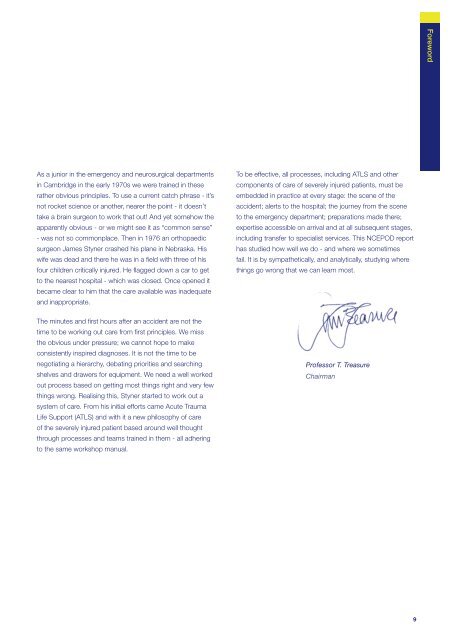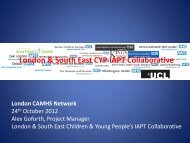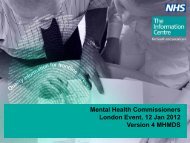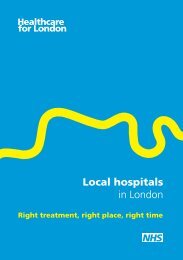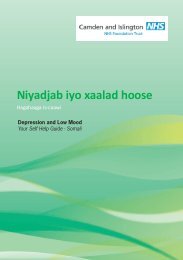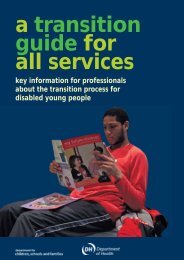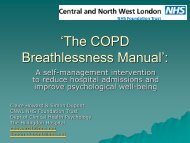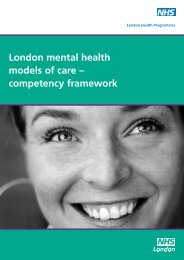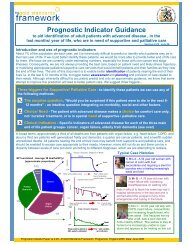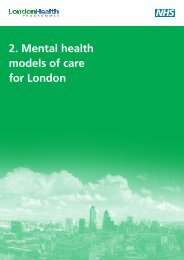NCEPOD: Trauma - Who Cares? - London Health Programmes
NCEPOD: Trauma - Who Cares? - London Health Programmes
NCEPOD: Trauma - Who Cares? - London Health Programmes
Create successful ePaper yourself
Turn your PDF publications into a flip-book with our unique Google optimized e-Paper software.
ForewordAs a junior in the emergency and neurosurgical departmentsin Cambridge in the early 1970s we were trained in theserather obvious principles. To use a current catch phrase - it’snot rocket science or another, nearer the point - it doesn’ttake a brain surgeon to work that out! And yet somehow theapparently obvious - or we might see it as “common sense”- was not so commonplace. Then in 1976 an orthopaedicsurgeon James Styner crashed his plane in Nebraska. Hiswife was dead and there he was in a fi eld with three of hisfour children critically injured. He fl agged down a car to getto the nearest hospital - which was closed. Once opened itbecame clear to him that the care available was inadequateand inappropriate.The minutes and fi rst hours after an accident are not thetime to be working out care from fi rst principles. We missthe obvious under pressure; we cannot hope to makeconsistently inspired diagnoses. It is not the time to benegotiating a hierarchy, debating priorities and searchingshelves and drawers for equipment. We need a well workedout process based on getting most things right and very fewthings wrong. Realising this, Styner started to work out asystem of care. From his initial efforts came Acute <strong>Trauma</strong>Life Support (ATLS) and with it a new philosophy of careof the severely injured patient based around well thoughtthrough processes and teams trained in them - all adheringto the same workshop manual.To be effective, all processes, including ATLS and othercomponents of care of severely injured patients, must beembedded in practice at every stage: the scene of theaccident; alerts to the hospital; the journey from the sceneto the emergency department; preparations made there;expertise accessible on arrival and at all subsequent stages,including transfer to specialist services. This <strong>NCEPOD</strong> reporthas studied how well we do - and where we sometimesfail. It is by sympathetically, and analytically, studying wherethings go wrong that we can learn most.Professor T. TreasureChairman9


